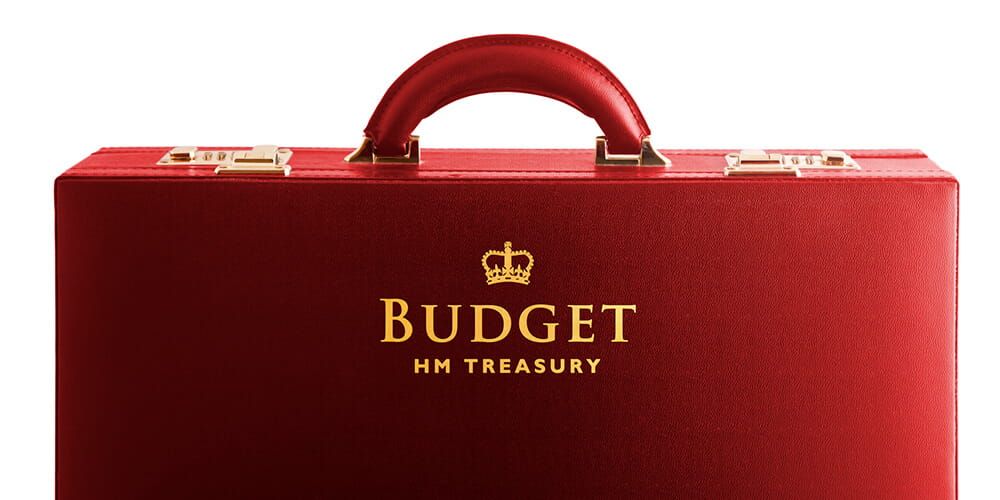Spring Budget 2024 summary: What are the key takeaways?
Community

On Wednesday (6th March), the Chancellor of the Exchequer, Jeremy Hunt, delivered his Spring Budget for 2024. This speech saw the announcement of some new taxes and adjustments to existing taxes, as well as changes to a number of economic policies.
This was the last Budget speech to be delivered by the UK Government before the next general election, which is widely anticipated to take place later in 2024.
To help you digest this raft of changes to taxes and policies, we’ve rounded up the key points worth noting. Let’s dive straight in!
How is the UK economy doing?
As part of the Budget, the Chancellor gave us an insight into the status of the UK’s economy, public debt and inflation levels.
- UK economy to grow by 0.8% in 2024 and by 1.9% in 2025, according to predictions from the Office for Budget Responsibility.
- Additionally, they’ve predicted growth of 2% (2026), 1.8% (2027) and 1.7% (2028).
- UK inflation is set to fall below the Government’s 2% target within a few months.
- Underlying debt is forecast to be 91.7% of GDP in 2024, increasing to 92.8% in 2025. This does not include Bank of England debt.
Taxes
- Rate of National Insurance will be cut by 2p for employees and self-employed, saving the average worker an estimated £450 per year.
- From April 2025, a new set of rules will be introduced in place of the current rules for non-domiciled individuals (non-doms). These are UK residents whose permanent residence is overseas.
- A £5,000 “UK ISA” allowance will be set up for those who invest in “UK-focused” shares. This will be created following a consultation.
Benefits and income support
- Full child benefits introduced for households where the highest earner earns up to £60,000. Up to 170,000 families will gain the full child benefit payment.
- Partial child benefits will be paid to households where the highest earner earns up to £80,000.
- People on benefits taking out emergency budgeting loans will benefit from a longer repayment period.
- Household Support Fund to continue for a further six months. This fund helps those struggling with the cost of living pressure.
- Removal of £90 admin fee for claiming a debt relief order (DRO). This solution allows the clearing of low-level debt for those on low incomes.
Energy and transport
- The temporary 5p cut in fuel duty will be kept for another year and fuel duty will be frozen for the 14th year running.
- A £160m deal with Hitachi has been reached for the UK government to buy nuclear sites in Anglesey in Wales and Oldbury in Gloucestershire. Plans are being prepared to build new nuclear power stations.
- The tax on the profits made by energy firms has been extended to 2029. It had previously been set to end in March 2028.
- Business class travellers will have to pay an increased air passenger duty when they fly from a UK airport.
- An additional £120m will be provided to the Green Industries Growth Accelerator (GIGA), an investment programme for expanding low carbon supply chains.
Housing
- The top rate of Capital Gains Tax paid when selling a property will be cut from 28% to 24% from 6th April 2024.
- Tax relief for owners of furnished holiday lets will be abolished from April 2025.
- Multiple dwellings Stamp Duty relief will be abolished. This is a tax relief for those who buy more than one property in a single transaction.
Alcohol, vapes and tobacco
- The previously introduced freeze on alcohol duty has been extended to February 2025 from its original end date of August 2024.
- Vaping products will be taxed from October 2026 after a consultation.
- Tax on tobacco set for a one-off increase to encourage people to switch to vapes.
Business and investment
- The Recovery Loan Scheme (RLS) has been extended until March 2026. RLS is a scheme designed to support access to finance for UK small businesses as they look to invest and grow.
- The threshold at which small businesses need to pay Value Added Tax (VAT) will increase to £90,000 from £85,000.
- A previously temporary increase in the rate of tax relief for orchestras and theatres to 45% will be made permanent. It was due to end in March 2025.
Other announcements
- A £1m fund for a memorial to Muslims who fought for Britain in both World Wars and more recent conflicts. It will be located at the National Memorial Arboretum.
- A 53% expenditure credit will be introduced for independent UK film productions with a budget of up to £15m.
For in-depth detail and analysis, the full Spring Budget and supporting documents are available on the UK Government website.
